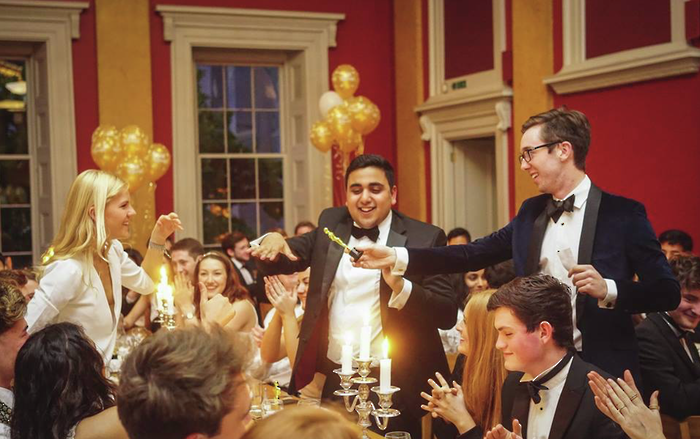Uber’s failure to provide passenger safety justifies TfL’s decision
Insufficient scrutiny of drivers and treatment of employees is unacceptable, according to Eve Hodgson

The refusal of Transport for London to renew Uber’s license is a good decision. It is made, according to TfL, on the basis of Uber’s “lack of corporate responsibility”, especially regarding serious criminal offences and DBS checks. In doing so, TfL have made a statement: they care about the safety of travellers, especially women, and that these concerns should be a priority for any transport company.
According to the Met police, Uber effectively permitted the sexual assault of one woman that led to a more serious attack on another as they failed to report the attack by one of their drivers. Thirteen thousand of their drivers in London (out of around 25,000 registered there) were required at the beginning of September to have new DBS checks, their current checks being deemed unsatisfactory. This refutes Uber’s claim that their drivers are subject to the same, enhanced DBS checks as teachers, care workers, and drivers from other cab firms.
Without “exceptional circumstances”, a license to drive a black cab will not be granted to convicted rapists, or for 10 years after a sexual assault conviction, and only then under extreme scrutiny. Clearly, it’s possible to drive for Uber as a repeat, recent sex attacker. The fact that criminal behaviour was not only allowed, but apparently concealed, by the company runs parallel with the monumental increase of sex assaults attributed to Uber drivers over the last few years. Between February 2016 and February 2017, forty-eight reports against Uber drivers were reported, 50% of all reports against taxi cab companies.
“Women should not have to worry about the possibility of their driver cutting their underwear off and raping them”
Women should not have to worry about the possibility of their driver cutting their underwear off and raping them. Women should not get into a taxi not knowing whether their driver is going to make sexual advances towards them. Women should be able to use a service, particularly one they have paid for, without fear for their wellbeing.
I appreciate that Uber is a source of jobs, especially for non-white men, who might feel driven out by the impending ban. Compared with the 37% of Uber drivers who self-describe as white Caucasian, 72% of taxi drivers in London are white. The job security of Uber drivers should absolutely be protected.
I think the notion that they would be protected through Uber is mistaken. Drivers had to fight in a 2016 industrial tribunal to even secure minimum wage and holiday pay rights. But it is nonetheless a job in a continuously competitive market, and allows a lot of work to be done on the employee’s terms.
The low price of Uber’s services has led many to object to the loss of what is often perceived as the only affordable private hire option in a city like London. It isn’t. Other companies offer the same services, with the added feature of a flat pricing scheme to avoid Uber’s surges. Even MyTaxi is now a viable option – offering black cabs from an Uber-style app, with a 30% discount now to fill the gap that will be created by the TfL ban.
So, Uber is cheap, and a large-scale employer. It is a shame to lose these benefits. However, they should not be protected at the cost of women’s fundamental, physical safety. There are nearly one million signatures on a petition to revoke TfL’s ban. Why is this displeasure not directed at the company that is proven to neither care about the people who work for it, or the people who use it?
To ignore Uber’s mistakes is to ignore the wider problem of sexual assault. To endorse the company which tries to hide such serious violations is a denial of the urgency with which rape and sexual assault needs to be treated.
If Uber wishes to continue to provide its services in London, they must prove they value their passengers’ safety above all else. Until then, I’ll get the tube
 Arts / Plays and playing truant: Stephen Fry’s Cambridge25 April 2025
Arts / Plays and playing truant: Stephen Fry’s Cambridge25 April 2025 News / Candidates clash over Chancellorship25 April 2025
News / Candidates clash over Chancellorship25 April 2025 Music / The pipes are calling: the life of a Cambridge Organ Scholar25 April 2025
Music / The pipes are calling: the life of a Cambridge Organ Scholar25 April 2025 Comment / Cambridge builds up the housing crisis25 April 2025
Comment / Cambridge builds up the housing crisis25 April 2025 News / Cambridge Union to host Charlie Kirk and Katie Price28 April 2025
News / Cambridge Union to host Charlie Kirk and Katie Price28 April 2025





